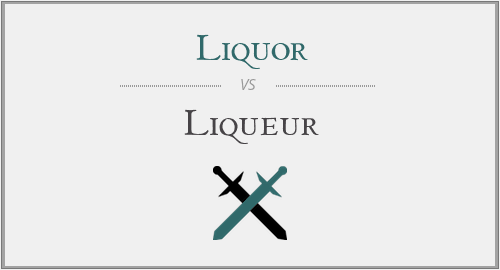Liquor vs. Liqueur: Navigating Distinctions in Alcoholic Beverages
Understanding the differences between "liquor" and "liqueur" involves recognizing variations in the types and characteristics of alcoholic beverages. This article aims to clarify the distinctions between "liquor" and "liqueur," shedding light on their meanings, applications, and appropriate usage in different contexts.
Correct Usage:
Liquor:
"Liquor" is a broad term used to describe any distilled alcoholic beverage. It includes spirits or hard liquor with high alcohol content, such as whiskey, vodka, gin, rum, and tequila. Liquor is typically consumed on its own or in cocktails and is not sweetened.
Liqueur:
"Liqueur" refers to a sweetened and flavored distilled alcoholic beverage. Unlike plain liquor, liqueurs are infused with various flavorings, such as fruits, herbs, spices, or extracts. Liqueurs are often enjoyed on their own or used as ingredients in cocktails or desserts.
Meanings and Applications:
Liquor:
Use "liquor" as a general term for distilled alcoholic beverages with high alcohol content. Liquor is typically not sweetened and is a key component in many classic cocktails.
Liqueur:
Use "liqueur" when referring to sweetened and flavored distilled alcoholic beverages. Liqueurs add complexity and sweetness to cocktails and are often enjoyed as digestifs or in coffee.

Examples:
Correct: He enjoyed a glass of whiskey, a classic example of liquor.
Correct: The bartender used orange liqueur to enhance the flavor of the cocktail.
Contextual Considerations:
Consider the sweetness and flavorings when choosing between "liquor" and "liqueur." "Liquor" is straightforward, high-alcohol content, while "liqueur" involves added flavors and sweetness.
Conclusion:
Navigating the distinctions between "liquor" and "liqueur" involves understanding the differences in their compositions and uses. Whether enjoying a neat spirit or savoring a flavored liqueur, using the appropriate term enhances clarity in discussions about alcoholic beverages.




Have a discussion about this article with the community:
Report Comment
We're doing our best to make sure our content is useful, accurate and safe.
If by any chance you spot an inappropriate comment while navigating through our website please use this form to let us know, and we'll take care of it shortly.
Attachment
You need to be logged in to favorite.
Log In